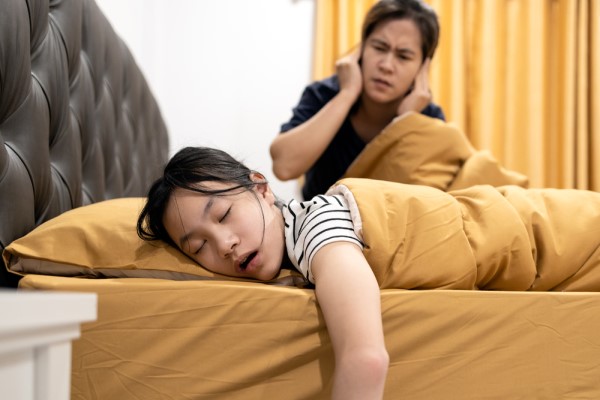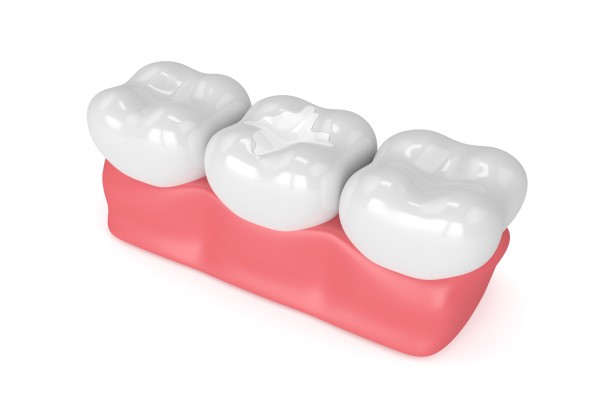Do Dental Appliances Work for Sleep Apnea?

If you have recently gotten a sleep apnea diagnosis, you will want to learn about the treatment options and how they work. CPAP devices are the most popular, but dental appliances are also a non-surgical option to consider. Continue reading to learn about the effectiveness of oral devices for sleep apnea treatment.
Dental appliances for sleep apnea
Dental appliances for treating sleep apnea are also called oral appliances, dental sleep devices or, more technically, Mandibular Advancement Devices (MAD) or Jaw Advancing Devices (JAD).
Nightguards are often mistaken for oral appliances. Although they may look like nightguards, the similarities are just that—the appearance. A night guard usually protects the teeth from the effects of grinding and clenching during sleep. A night guard cannot correct the underlying reason behind sleep apnea—a restricted airway.
How the appliances work
The aim of using a dental appliance to treat sleep apnea is to keep the airway open while sleeping. The device achieves this objective by preventing the tongue and jaw from collapsing into the airway during sleep. By stopping the obstruction of airflow, the dental appliance can stop snoring and sleep apnea. Oral appliance therapy is approved by the American Academy of Sleep Medicine for treating obstructive sleep apnea and snoring.
Most patients are comfortable wearing the sleep apnea oral appliance and adjust quickly to wearing it like a custom-fitted mouthguard when sleeping. The dental appliance is designed using precise specifications to meet individual requirements and achieve the patient’s desired results. With recent innovations in the technology used for producing oral appliances, it is now possible to use 3D printing to enhance fit, durability and comfort of each device for each patient.
The sleep appliance is convenient to wear and does not interrupt regular sleep. Using the device improves sleep quality, and patients often report waking up feeling more rested. Ultimately, there is a high satisfaction rate with dental appliances.
The benefits of using oral appliances
Although there is no specific therapy that is 100 percent effective for treating sleep apnea, dental appliances are an effective option for many people. There are some additional benefits of oral devices, including:
- Portability makes them easy to carry when traveling
- A noiseless operation allows for uninterrupted sleep
- No electricity needed to operate
- Comfortable for sleeping in any position
Dental sleep apnea treatment ensures a better quality of life, as well as a longer and healthier life. The dentist will perform a comprehensive evaluation to make a diagnosis and recommend the proper treatment for sleep apnea. Different dental devices are available nowadays, but only the appliances recommended and provided by the dentist have been proven over time to be effective.
In cases of severe sleep apnea, an oral appliance may not be advisable because it may not provide adequate support for the compromised air passage. In some cases, a dental device may be recommended to make wearing a CPAP machine more tolerable.
In summary
So, if you want to know if dental appliances work for sleep apnea, the answer is yes. A dentist can provide a device made specifically for you with the backing of the latest research and clinical techniques.
Request an appointment here: https://www.providencefamilydentistry.com or call Providence Family Dentistry at (678) 496-7021 for an appointment in our Mableton office.
Check out what others are saying about our dental services on Yelp: Sleep Apnea in Mableton, GA.
Recent Posts
Wondering how to treat your sleep apnea? This sleep disorder causes you to stop breathing during the night, which is caused by either your tongue or excess tissues blocking the back of your throat. Common signs associated with this condition include snoring, headaches, a dry throat, grinding or clenching teeth, mood swings, feeling tired and…
One of the most common symptoms of sleep apnea is snoring during the night. This may seem like a minor annoyance for you or for your partner. However, you may not have realized just how serious this condition can be for you. Treating sleep apnea, whether it is mild or severe, is extremely important for…
A preventive dentist promotes long-term oral wellness by focusing on early detection, regular checkups, and proactive measures to protect teeth and gums from disease. By prioritizing prevention, you can avoid many dental issues before they even begin. Explore some of the most frequently asked questions about preventive dentistry, gain valuable insight that can help you…
Practicing preventive dentistry strategies can help you avoid serious dental problems. It can support your personal goals in keeping your gums and teeth healthy. Prevention is always better than going through treatments for serious dental problems. If you want to know how preventive dentistry can avoid the development of a serious oral problem, here are…


